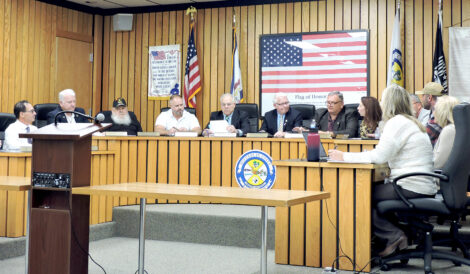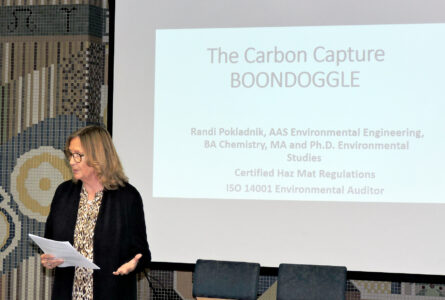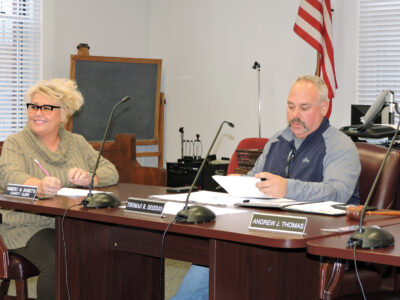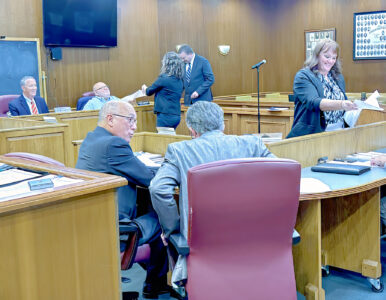Organization raises concerns about local carbon capture plans
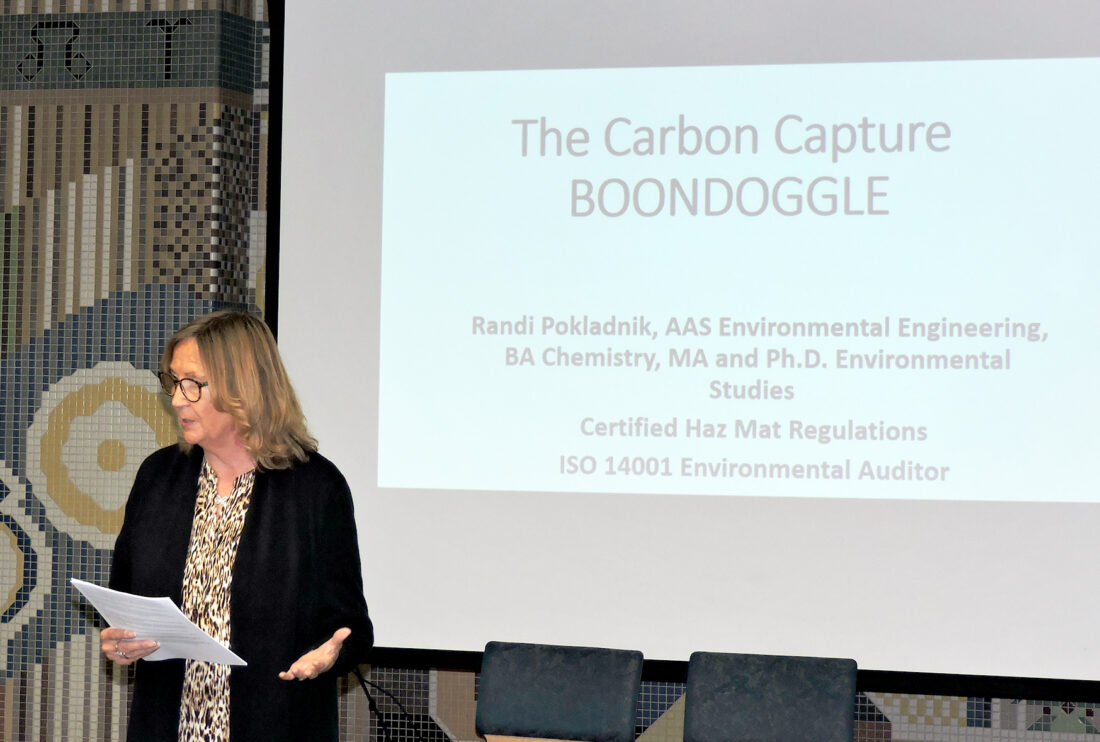
SPEAKING OUT — Leah Harper, founder of the FreshWater Accountability Project, welcomed the handful of area residents gathered at the Mary H. Weir Public Library in Weirton Tuesday as part of the organization’s efforts to discuss concerns with carbon capture and sequestration. -- Craig Howell
WEIRTON — While efforts have been moving forward to transform the Upper Ohio Valley into a hub for carbon capture and sequestration, some are warning of the potential dangers related to the industry.
Representatives of the FreshWater Accountability Project organized a public forum at the Mary H. Weir Public Library Tuesday afternoon, to provide their views of carbon capture, which collects carbon dioxide from power plants, industrial facilities, and other sources, compressing the gas and transporting it through pipelines before injecting into the ground.
“We, as researchers, are here to share what we’ve found out about the industry,” said Leah Harper, founder of the organization.
Tenaska, a company based in Nebraska which reports to have more than two decades of experience in energy-related industries, already has established a test well for carbon capture in the Cadiz area, and has been working this year to establish a second test well near New Manchester.
Randi Pokladnik, a retired environmental scientist with degrees in chemistry and environmental studies and environmental engineering, says she lives within five miles of the test site in Harrison County, Ohio, and has been studying potential issues since learning about the process in 2019.
“This is another way for the fossil fuel industry to keep digging,” Pokladnik said, warning there currently is no guaranteed technology which will keep sequestered carbon from spreading out of its underground storage, presenting potential dangers to surrounding lands and water sources.
In addition to its two test wells, Tenaska previously announced plans to eventually have fully functioning well operations in Hancock and Marshall counties in West Virginia, Washington County in Pennsylvania, and Jefferson, Harrison, and Carroll County in Ohio.
According to Pokladnik, federal regulations for Class VI wells needed for CCS were established in 2010, with permits for fewer than 30 wells issued since that time but only two wells becoming operational.
While the test well has been planned in Hancock County, she said she has not been able to find much on the well itself, including whether permits have been issued or its planned location.
Local business owner Ted Arneault, one of only a few residents in attendance Tuesday, said, if the permits are overseen by the West Virginia Department of Environmental Protection, much of that information would have to be available for public review.
“Legally, they would have to be,” Arneault said.
Hancock County Commissioner Tommy Ogden also was in attendance, claiming there are some at the state level who have expressed concerns to him privately about carbon capture, but don’t feel as if they can stand against it because of possible revenue streams to the state.
Steven G. Jansto, who has a Ph.D. in materials science and engineering, said another concern is in the current metallurgical makeup of pipelines which could be used to transport the captured carbon gas.
“We can’t defy the laws of physics and chemistry,” Jansto said, explaining he believes existing piping would be corroded at an accelerated rate by the carbon gas, and would need to upgraded in order to be effective with the industry.
Tuesday’s informational session was part of a series held by the organization founded in 2012 with an eye toward protecting freshwater resources and raising awareness of potential dangers associated with fracking operations in the natural gas industry.

